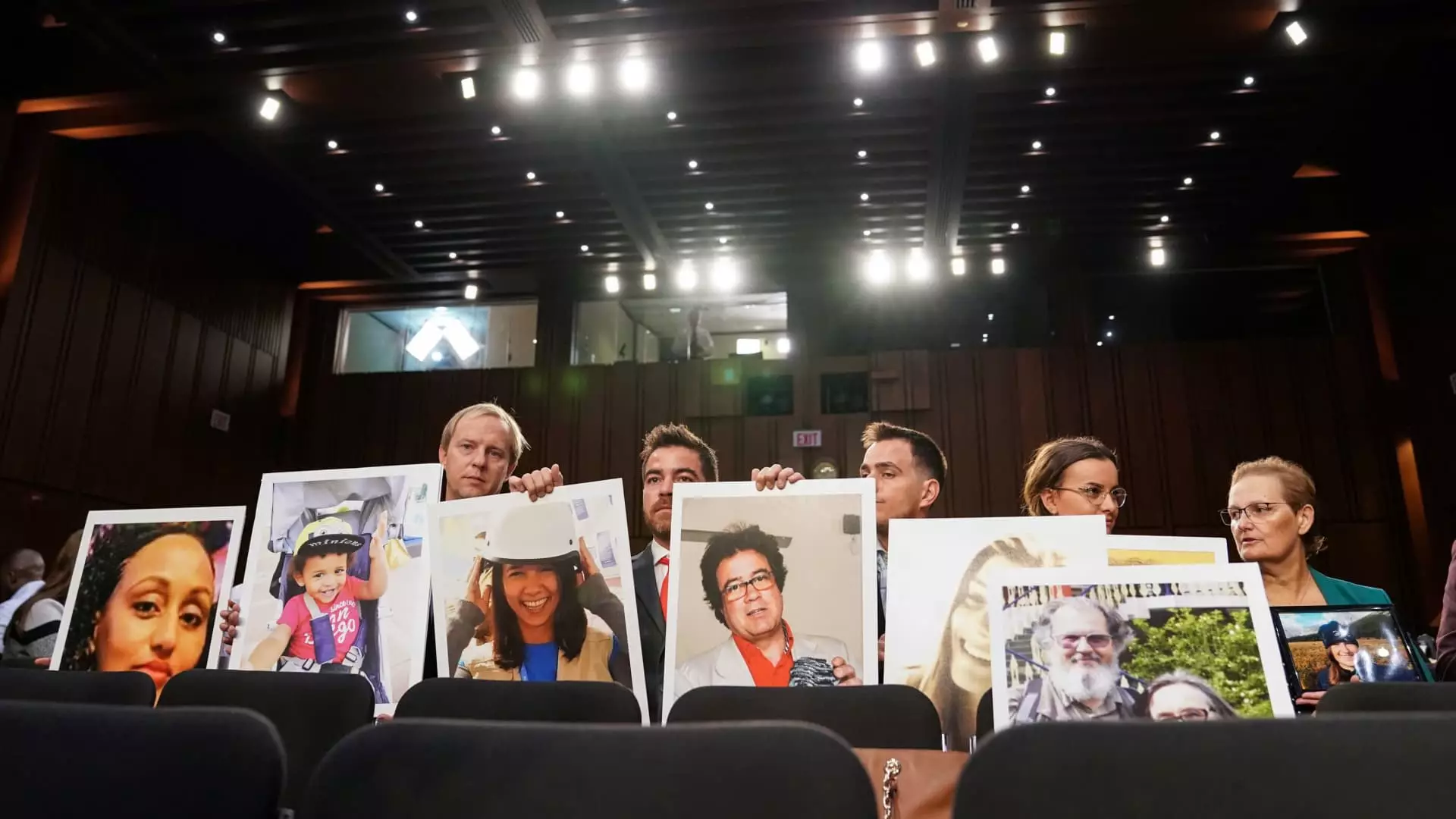When the U.S. Department of Justice (DOJ) made the decision to negotiate a non-prosecution agreement with Boeing, many saw it as a troubling signal about corporate accountability in America. This deal comes in the wake of two catastrophic crashes involving Boeing’s 737 Max planes, resulting in the tragic loss of 346 lives. This agreement allows Boeing to escape prosecution, which raises critical questions about the moral fiber of our legal system. In a time where justice should be a priority, particularly concerning corporate negligence that costs lives, the actions of the DOJ appear to be an alarming concession to corporate power.
Boeing, one of America’s most prominent aerospace firms and a significant military contractor, has been deemed too big to fail—or at least too big to face the full extent of judicial consequences. This agreement, which claims to prioritize public interest, ultimately serves as an endorsement of corporate immunity over meaningful accountability. With families yearning for justice, the DOJ’s actions connote an unsettling message: that the welfare of mega-corporations takes precedence over the very lives lost due to their negligence.
A Distorted Sense of Accountability
To many observers, the crux of this deal lies in its perceived fairness. The DOJ’s justification for avoiding a trial is centered on the idea of a swift resolution that includes over $1.1 billion in various compensatory measures from Boeing. However, this raises pertinent questions: does financial compensation equate to true justice? Are monetary settlements capable of restoring the dignity or preventing future tragedies? To the families of the crash victims, the answer appears to be a resounding no.
Despite a supposed investment in safety and compliance measures, one must wonder if this approach merely permits Boeing to treat accountability as a financial transaction rather than a moral obligation. The aviation industry is predicated on trust and safety, and by allowing Boeing to circumvent a trial, the DOJ sends a perverse signal: that profit margins can overshadow human lives.
Precedent of Impunity
As the DOJ negotiates this unprecedented non-prosecution agreement, the ramifications extend beyond just Boeing and its stakeholders; this sets a dangerous precedent for other corporations. If institutions can effectively buy their way out of accountability, it creates a perverse incentive to prioritize profits over ethics. Companies may now be emboldened to engage in risky behaviors, assuming that they can dodge consequences through negotiations, thus further endangering the public.
The previous accommodations made for Boeing, which included a $2.51 billion settlement in 2021 that limited their liability, exemplify a worrying trend of leniency. Far from being punished for heinous errors leading to loss of life, Boeing has continuously found pathways to evade accountability. The notion that a mere change in the upper management or financial compensation can cleanse a company’s record of negligence is deeply flawed and dangerous.
Public Sentiment and the Call for Justice
The voices of the crash victims’ families ring loud and clear through legal statements and public outrage. Many family members have vehemently criticized the government’s decision, characterizing it as a “sweatheart deal” that indicates deep-seated corruption and moral decay. In a society that seeks justice and resolution, it is astonishing to witness a scenario that appears to overlook the profound implications of negligence and loss.
While the DOJ claims that a portion of the families supports the non-prosecution deal, there are many others who are adamantly opposed. The division within these families mirrors the broader societal concerns about corporate behavior and justice. For those who stand against the agreement, it is not merely a dispassionate legal case; it is a fundamental question of ethics in capitalism.
The Bigger Picture: Corporate Culture and Governance
Boeing’s troubles are not isolated incidents; they serve as a microcosm of issues prevalent within corporate America. The case shines a light on the need for cultural change within corporations, emphasizing ethical responsibility over profit. In a world increasingly defined by interconnectedness, corporate actions have repercussions that ripple through communities and economies.
It is imperative for regulatory bodies to not only ensure compliance but to foster an environment where ethical practices are as integral to corporate culture as profit. Unless a fundamental shift occurs from within, we risk creating a dystopian landscape where businesses are insulated from the consequences of their actions.
The ongoing saga surrounding Boeing and the Department of Justice reveals a poignant truth: justice is not simply about legal outcomes, but about moral responsibilities and ethical governance. In the shadow of corporate tragedy, we must grapple with the unsettling truths about accountability and the moral fabric of our society.

